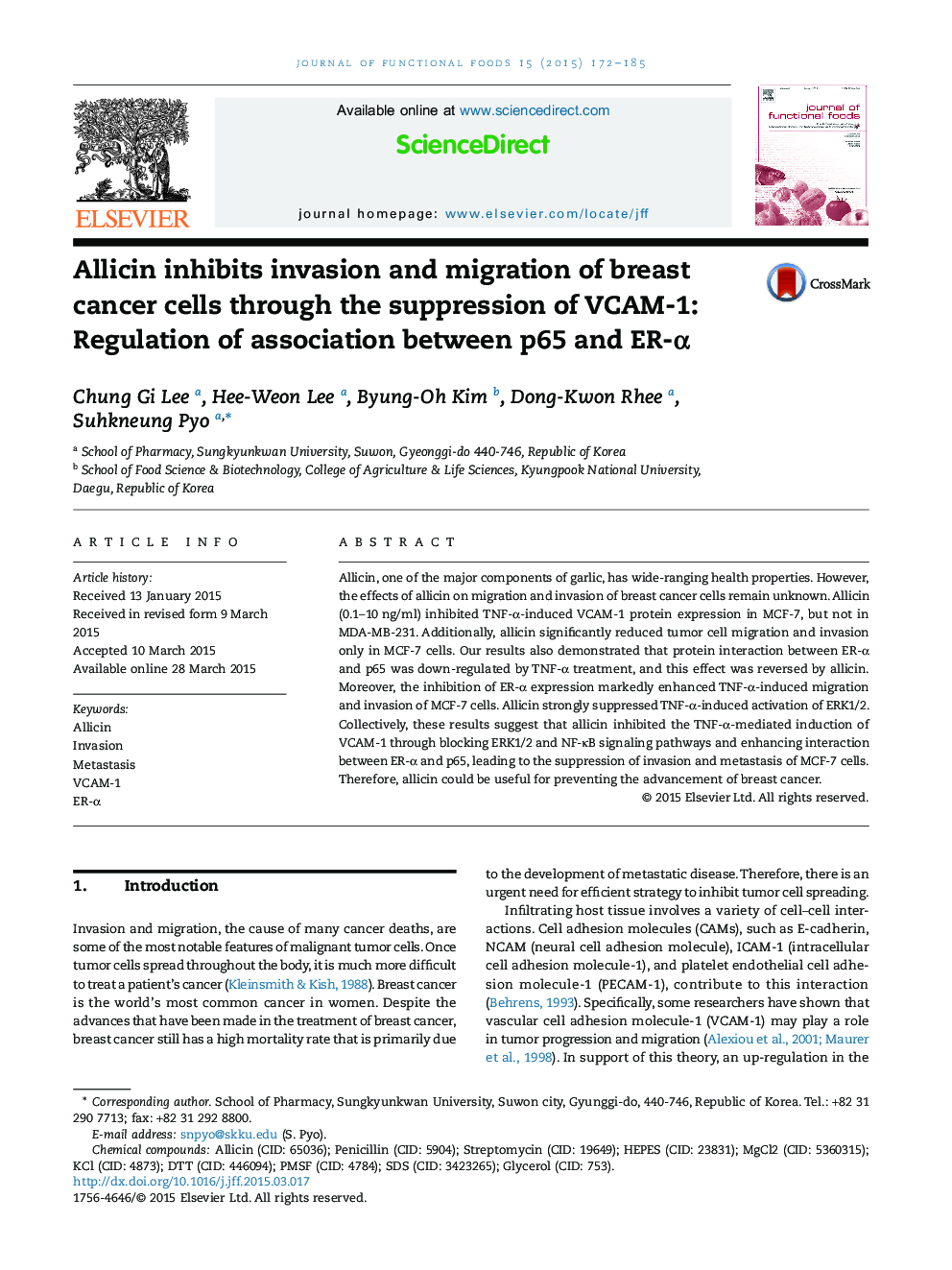| کد مقاله | کد نشریه | سال انتشار | مقاله انگلیسی | نسخه تمام متن |
|---|---|---|---|---|
| 1219924 | 1494549 | 2015 | 14 صفحه PDF | دانلود رایگان |

• Allicin reduced tumor cell migration and invasion only in MCF-7 cells.
• Allicin is capable of inhibiting the expression of VCAM-1.
• Allicin treatment alters the expression of NF-κB and ER-α in TNF-α-stimulated MCF-7 cells.
• Allicin suppressed TNF-α-induced activation of ERK1/2.
Allicin, one of the major components of garlic, has wide-ranging health properties. However, the effects of allicin on migration and invasion of breast cancer cells remain unknown. Allicin (0.1–10 ng/ml) inhibited TNF-α-induced VCAM-1 protein expression in MCF-7, but not in MDA-MB-231. Additionally, allicin significantly reduced tumor cell migration and invasion only in MCF-7 cells. Our results also demonstrated that protein interaction between ER-α and p65 was down-regulated by TNF-α treatment, and this effect was reversed by allicin. Moreover, the inhibition of ER-α expression markedly enhanced TNF-α-induced migration and invasion of MCF-7 cells. Allicin strongly suppressed TNF-α-induced activation of ERK1/2. Collectively, these results suggest that allicin inhibited the TNF-α-mediated induction of VCAM-1 through blocking ERK1/2 and NF-κB signaling pathways and enhancing interaction between ER-α and p65, leading to the suppression of invasion and metastasis of MCF-7 cells. Therefore, allicin could be useful for preventing the advancement of breast cancer.
Journal: Journal of Functional Foods - Volume 15, May 2015, Pages 172–185